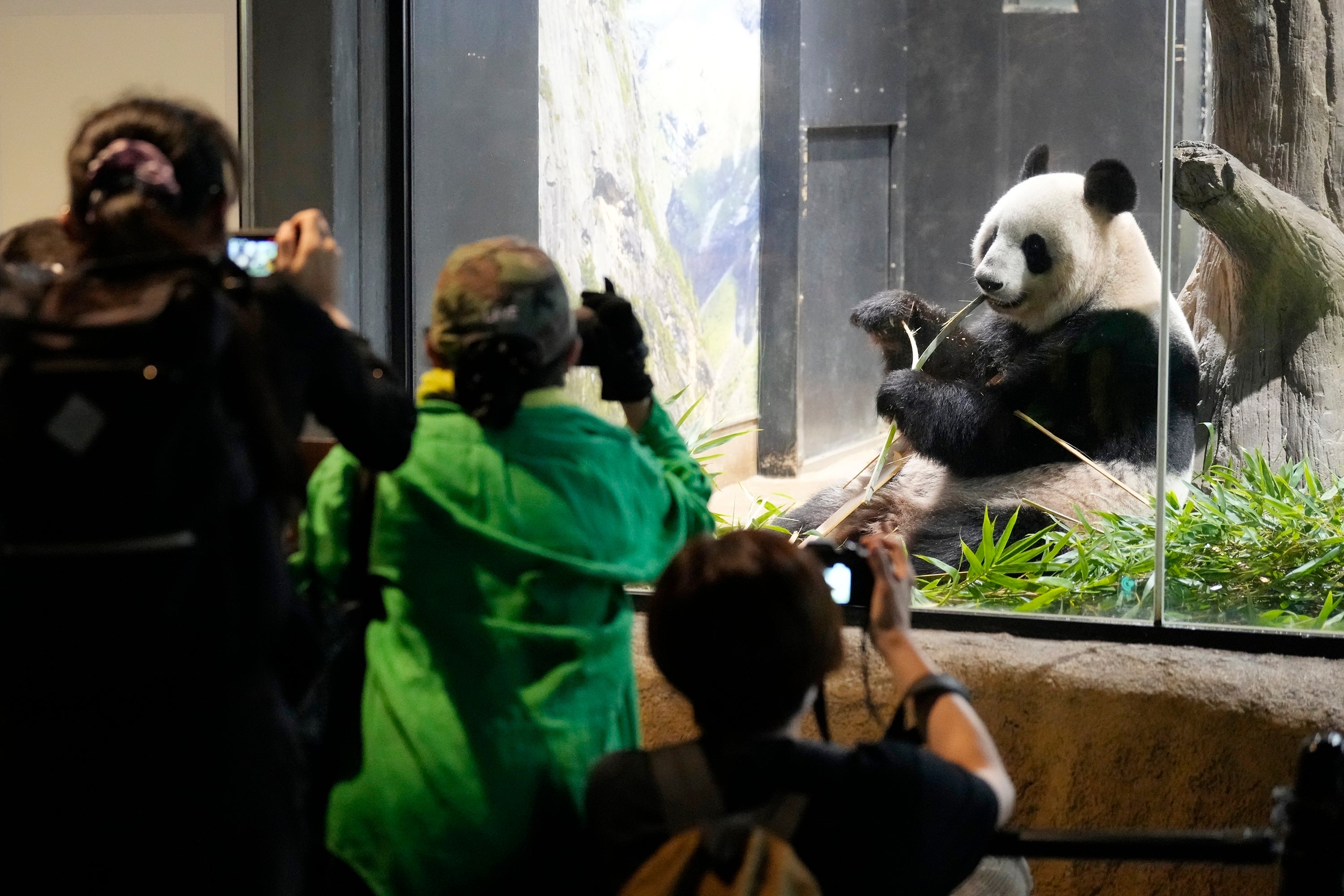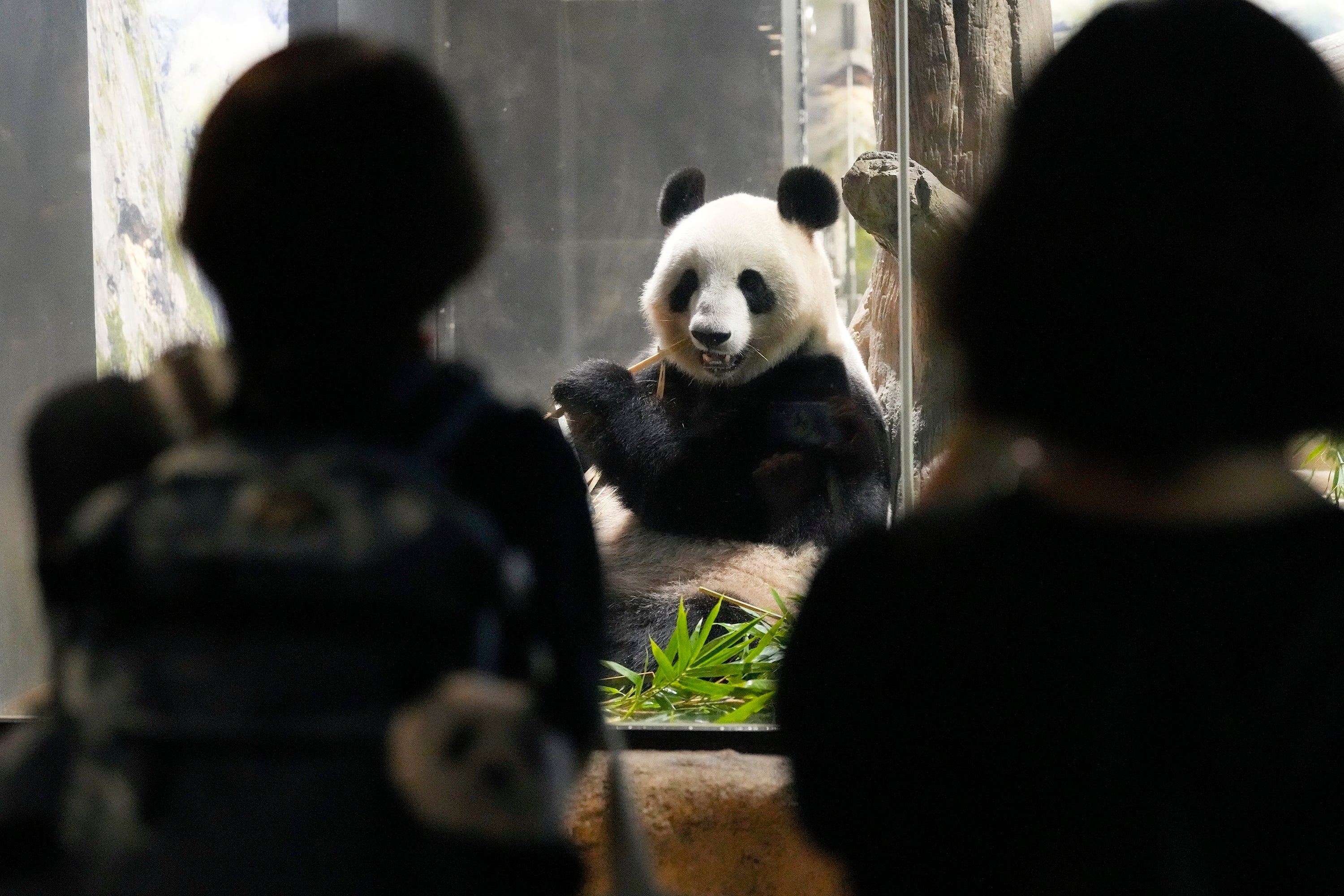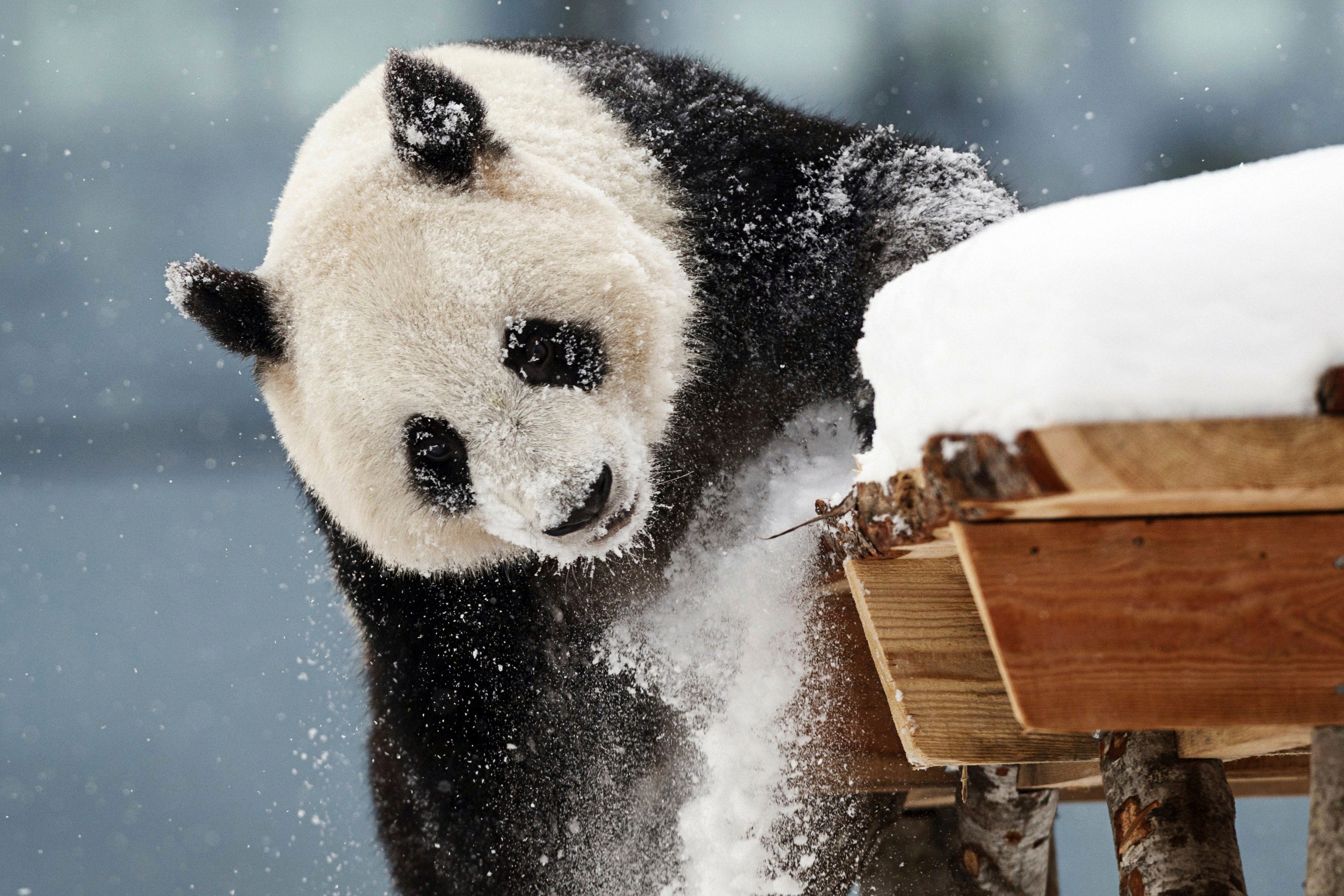Fans bid farewell to beloved panda pair Ri Ri and Shan Shan before their return to China
Thousands of Japanese fans bid farewell to a beloved panda couple at Tokyo's Ueno Zoo before their return to China for medical treatment

Your support helps us to tell the story
From reproductive rights to climate change to Big Tech, The Independent is on the ground when the story is developing. Whether it's investigating the financials of Elon Musk's pro-Trump PAC or producing our latest documentary, 'The A Word', which shines a light on the American women fighting for reproductive rights, we know how important it is to parse out the facts from the messaging.
At such a critical moment in US history, we need reporters on the ground. Your donation allows us to keep sending journalists to speak to both sides of the story.
The Independent is trusted by Americans across the entire political spectrum. And unlike many other quality news outlets, we choose not to lock Americans out of our reporting and analysis with paywalls. We believe quality journalism should be available to everyone, paid for by those who can afford it.
Your support makes all the difference.Thousands of Japanese fans bid tearful farewell to their beloved panda couple that made their final public appearance at Tokyo’s Ueno Zoo on Saturday before returning to China for medical treatment.
The pair, Ri Ri and Shan Shan, are the parents of Xiang Xiang, the park-born idol that had returned home last year.
More than 2,000 visitors, many wearing T-shirts and carrying items decorated by panda motifs, queued outside the zoo hours before the opening. Some said they camped out overnight to secure their chance.

The pandas, both 19 years old, arrived at the Ueno Zoo in 2011. Although their lease is good through 2026, Japan and China agreed to their return home as the aging couple need treatment for high blood pressure, according to the zoo.
Hirono Sasaki, who waited to enter the zoo since 5 a.m., was crying. “They were always my source of comfort, so I’m feel extremely sad,” she said. “I loved seeing Ri Ri climbing trees in her old enclosure. I hope she can climb trees again when she is back in China.”
After their hours long wait, visitors were given only a few minutes inside their hut to view the black-and-white animals. Lucky ones could get a glimpse of them nibbling on bamboo branches, but others could only catch them during their naps.

China sends pandas abroad as a sign of goodwill but maintains ownership over the animals and any cubs they produce. The animals are native to southwestern China and are an unofficial national mascot.
Pandas, which reproduce rarely in the wild and rely on a diet of bamboo, remain among the world’s most threatened species. An estimated 1,800 pandas live in the wild, while another 500 are in zoos or reserves, mostly in Sichuan.